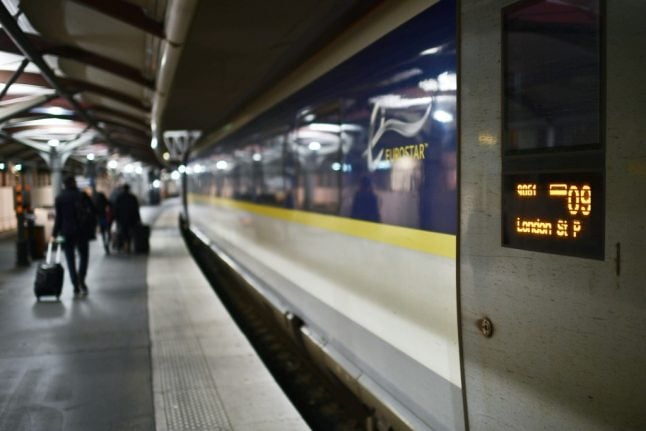A much reduced Eurostar service is taking passengers between the French and British capitals during the pandemic, with London-bound travellers needing to quarantine on arrival and those heading to Paris requiring a negative Covid-19 test.
Those stepping off the train from London onto the platform at Gare du Nord in Paris found new customs checks awaiting them, with limits, taxes and even bans on bringing in some goods.
British travellers who are not resident in France however can now also enjoy tax rebates on their shopping when leaving Paris.
READ MORE: Brexit: What changes in France from January 2021?
“In the first days of Brexit, there will be a lot of explaining to do,” acknowledged Jean-Roald L'Hermitte, the head of customs for the Paris region.
“We will gradually get travellers used to these services and these controls,” he told AFP, emphasising that checks should not slow down flows and will not target every traveller.
He said some 700 new French customs officers had been recruited to deal with Brexit, adding the service had been “innovative” in rising to the challenge, with automated kiosks being set up for British passengers to get their VAT rebates.
'Not more complicated'
As the passengers emerged from the newly-arrived train in Paris, some were called by the customs to stop and say what they were carrying.
“When I arrived, they asked me if I had any goods or food worth up to 300 euros. If so, I had to pay taxes,” said Stephanie Bapes, a 35-year-old Frenchwoman who lives in London.
“I come home once a year, I wasn't supposed to be home for the holidays but there was an emergency. I bought my ticket at the last minute, with a test (for Covid-19) costing 200 pounds (225 euros).”
Victoria, 24, wearing the obligatory sanitary mask to travel, said she was more concerned about about the pandemic regulations than post-Brexit rules.
“Rather, it is the Covid procedures that we are looking at today,” she said.
On the other side of the Channel at St Pancras station in London, travellers wandered out into a ghostly station concourse with the usually busy shops still closed.
“It's not more complicated than before Brexit” said Clemence, surrounded by her children.
Mathilde Allemand, 35, a nurse living in London for the last seven years, said that her journey was smooth.
“What has changed is to know what we have to do in advance. I took an hour to check everything as we have Brexit and the pandemic,” she said, adding she planned to take an expensive Covid-19 test in order to win an early release from quarantine.
Christophe Verclytte, 29, who was taking the 3:31 pm train to Paris after visiting his sister in London, lamented that Brexit had happened at all but expressed relief that the last-minute deal had been found.
“I think it's a great mistake. But, it's good that a deal has been found, that will allow us to keep a link.”
READ ALSO: Uncertain future: The challenges ahead for Britons living in Europe



 Please whitelist us to continue reading.
Please whitelist us to continue reading.
Member comments